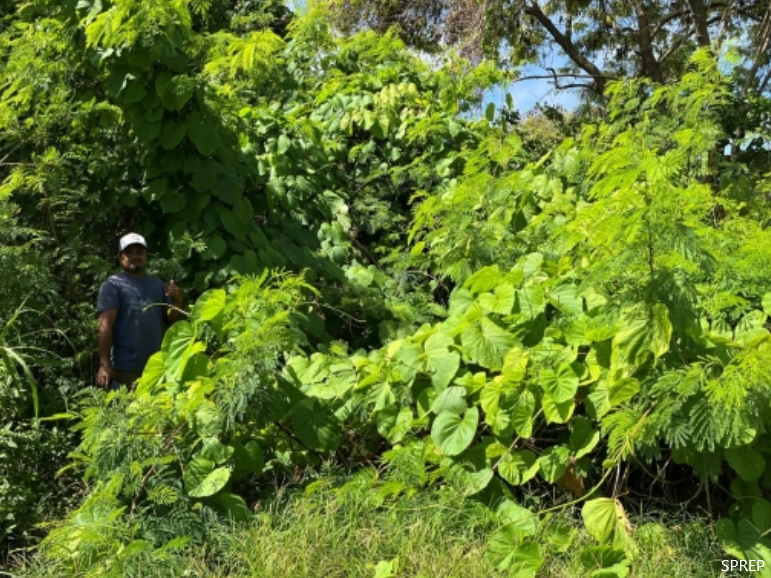
Effective invasive weed management is crucial for enhancing community resilience to climate change. Climate change can accelerate the spread of invasive species. Together, invasive species and climate change reduce ecosystem resilience, food security and negatively impacts biodiversity conservation efforts.
Climate change can facilitate invasive weeds by altering background environmental conditions, increasing disturbance through extreme climatic events and through human responses to climate change. While all plants, regardless of whether they are native or invasive, will likely be affected by environmental change, it is widely expected that climate change will favour invasive weeds at the expense of native plants.
Until 2024, the Republic of Marshall Islands (RMI) had not introduced a natural enemy to control a weed. This changed with the introduction of the chromolaena gall fly (Ceichidochares connexa) to manage chromolaena (Chromolaena odorata) on Bikini Island.









